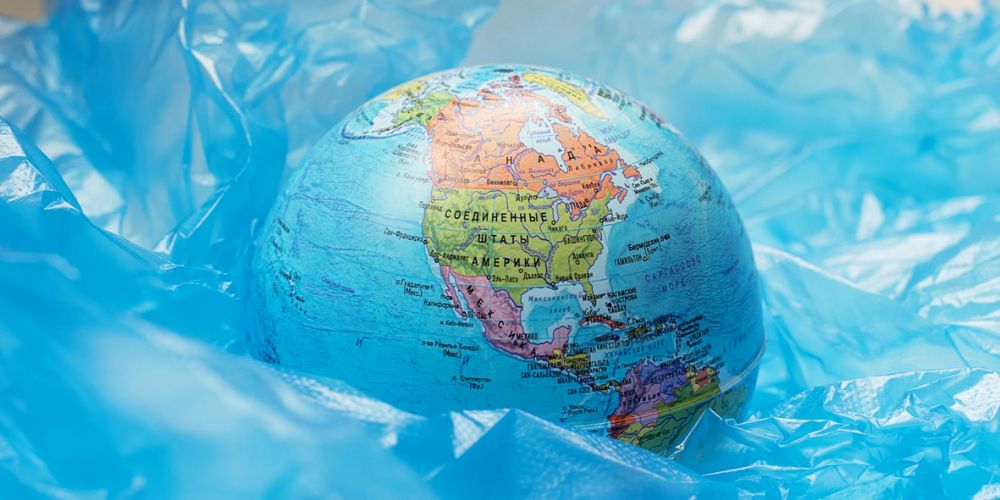10 December 2024

Imagine a world without plastic pollution – what would it be like?
Plastic pollution remains one of the most pressing environmental challenges of our time, with over 11 million metric tons entering the ocean annually. Projections suggest that plastic pollution in the aquatic environment alone could triple by 2060, exacerbating environmental and health crises. On this notion, over 100 nations advocated for caps on plastic production and bans on toxic chemicals in plastics. This discussion ensued during the fifth round of negotiations for a Global Plastic Treaty (INC-5) recently concluded in Busan, South Korea. However, these goals were deemed ambitious and resistance from oil-producing countries delayed consensus, necessitating a continuation of discussions into 2025.
The Global Plastics Treaty was attended by over 3,800 participants from 170 countries and more than 440 observer organizations. The complexity and urgency of addressing the global plastic pollution crisis was highlighted. Prominent voices such as UNEP and country leaders underscored the urgency of action, and yet there was no legally binding treaty signed by the end of the discussions. Was the treaty an utter failure? Cautious hopes are casted for the future still, where collective action becomes the key to achieving a better environment for our planet.
The absence of a finalized treaty has disappointed many. However, the presence of challenges means there are lessons learned that can be implemented going forward. The negotiations in Busan brought focus to critical areas such as improving transparency, addressing waste management challenges, and ensuring more inclusive participation of diverse stakeholders in future negotiations. Nations agreed on the urgency of addressing plastic pollution, with many emphasizing the need for solutions that extend beyond waste management to tackle the root causes of the crisis, including excessive production and reliance on fossil fuels.
Sustainable solutions require a comprehensive approach that integrates environmental, economic, and social considerations. The negotiations also highlighted the need for greater support for developing nations, many of which bear the brunt of plastic pollution while lacking the resources to manage its impacts. Enhanced intersectoral collaboration and partnerships will be key to ensuring that these nations can implement effective solutions, from circular economy initiatives to advanced waste management technologies.
One of the most powerful messages from INC-5 is that the fight against plastic pollution is a shared responsibility. In the face of challenges, every conversation counts, and every decision contributes to the larger goal of a plastic-free future. The emphasis on inclusiveness—bringing together governments, civil society, and the private sector—reflects the recognition that diverse perspectives are essential for designing effective and equitable solutions.
As the world prepares for the next round of negotiations, the outcomes of INC-5 serve as both a reminder of the challenges and a source of hope. The growing consensus on the need for a legally binding treaty, combined with the lessons learned in Busan, provides momentum and serves as a strong foundation for future efforts.
The journey toward a resilient, sustainable future free from plastic pollution is far from over, but each step brings us closer to that goal. By learning from INC-5 and maintaining momentum, as part of the global community, we can turn the tide against plastic pollution and create a healthier, more sustainable planet for generations to come.
Additional links to read:
Non-Paper 3 of the INC-5: https://wedocs.unep.org/bitstream/handle/20.500.11822/46483/Non_Paper_3_E.pdf
Chair’s Text of the INC-5: https://wedocs.unep.org/bitstream/handle/20.500.11822/46710/Chairs_Text.pdf
References
OECD. (2022). Global Plastics Outlook: Policy Scenarios to 2060, OECD Publishing, Paris, https://doi.org/10.1787/aa1edf33-en.
United Nations Environment Program. (2024). Decisive fifth session of negotiations on a global plastic pollution treaty opens in Busan. UNEP Website accessed December 19 2024 https://www.unep.org/news-and-stories/press-release/decisive-fifth-session-negotiations-global-plastic-pollution-treaty
United Nations Environment Program. (2024). Plastic pollution treaty negotiations adjourn in Busan, to resume next year. UNEP Website accessed December 19 2024 https://news.un.org/en/story/2024/12/1157646
